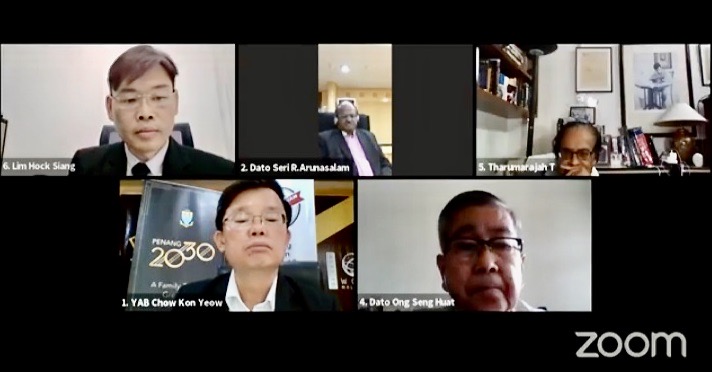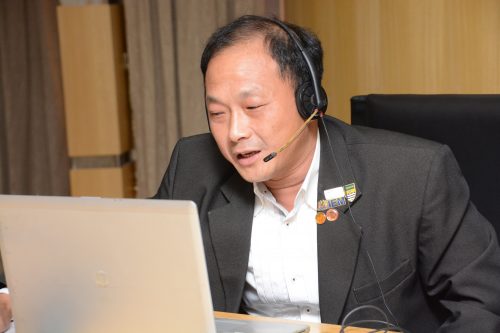ALL parties should choose mediation over litigation to resolve any dispute, says Chief Minister Chow Kon Yeow.
He said he strongly supported the call for mediation as the first option to resolve disputes as there were many advantages.
Chow voiced his support during a webinar on Covid-19 Bill 2020 hosted by the Council of Justices of Peace (JP) Penang at Komtar today.
He said the Penang government applauded the initiative and courage of the JP Council Penang to host the webinar.
Chow also commended its move to invite two senior law practitioners to share their views, for the benefit of the Penang community, particularly the business sectors.

“In embracing the new normal together, I strongly urge the various industry sectors and trade association leaders to take the lead in encouraging their community members to choose mediation over other dispute resolutions in their effort to resolve their contractual disputes,” Chow said in his keynote address.
“Mitigate not litigate. In fact, I would encourage the business communities through their respective trade bodies or associations to set up their own in-house panel of mediators to help resolve their own community (members) disputes.
“I am confident that the JP mediation bureau is more than willing to assist, and the state government will support the efforts of JP mediation bureau to promote community mediation in Penang.
“If the concept of community mediation proves to be successful and popular, Penang will take the lead again.
“The state may consider spearheading and establishing a state level one-stop mediation centre for the benefit of all Penangites and the wider community.”
The live Zoom meeting was broadcasted on YouTube and also shared on the Chief Minister’s Facebook page.
Among the advantages of mediation, he said, are:
- Cost effective – saves money and time.
- Relationship – litigation can ruin the working relationships; mediation allows parties to resolve disputes in a friendly way without destroying existing goodwill.
- Control – disputants are in control which in turn helps both parties to reach an outcome that are satisfactory to both.
- Privacy – mediation avoids the publicity of court proceedings.
- Compliance – properly drafted mediation agreement is enforceable in court of law.

JP committee member Ting Chek Choon was the mediator for the webinar while the panellists were honorary legal advisers T. Tharuma and Lim Hock Siang, and JP Penang Mediation Bureau chairman Datuk Ong Seng Huat. Also present were Council of Justices of Peace Penang president Datuk Seri R. Arunasalam and committee members Lee Choo Yong and Lance M.T. Lai.
Chow said Parliament had introduced the Covid-19 Bill 2020 to provide temporary measures which include the amendments to certain Acts to ease party or parties who are unable to fulfil their contractual obligations.
He added that unlike the Singapore bill, there is a clause for mediation in the Malaysia Bill 2020.
Chow said since the establishment of the JP mediation bureau in 2017, the Penang JPs have worked hard and tirelessly to promote not only neighbourhood mediation but also to transform the philosophy of community mediation to a new level, covering trades as well as small and medium business.
He said mediation is not something new for the locals as in the past, the Malays, Chinese and Indians had their way of resolving disputes.
For instance, the Malay mediators were local chiefs like imam, penghulu and ketua kampong.
In Penang, the Justices of Peace were appointed during the British administration before Independence to mitigate the shortage of magistrates then.
Ong said JPs in Malaysia are recognised by all Commonwealth countries, citing a case where an Australian medical professor came to sign court statement before him to have it authenticated.
Tharuma suggested that the JPs should be more active now and work with the state government. However, he said the services of JPs should not always be free of charge, suggesting that there should be pro bono and non-pro bono for the people to choose.
Lim said JPs and the state government should educate the public towards a caring society to lessen matters to be resolved in court.
Story by K.H. Ong
Pix by Law Suun Ting

